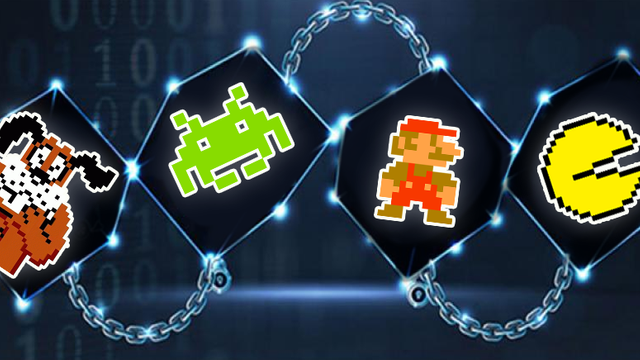Gaming and the Blockchain
Investors and traders from all corners of the world are joining cryptocurrency and blockchain communities on reddit, telegram, bitcointalk and discord (in addition to a variety of other platforms) with the hope these groups bring a great wealth of knowledge, and as a result, a sizable return on their investments. Since their inception in 2009, cryptocurrencies have allowed individuals to break away from fiat currencies and transfer value pseudo-anonymously using cryptography and our favorite immutable public ledger known as the blockchain.
The hype behind cryptocurrency and the blockchain come from the different use cases and how this technology can be applied to a variety of different industries. As of this very moment, we can see the blockchain and cryptocurrency gaining traction in the supply chain, governmental affairs and virtual gaming industries.
With the supply chain industry, the blockchain has allowed supply chain companies to effectively and efficiently track shipments of products and materials from the origin to their final destination. In addition, verifiable supply chain traceability and product authentication will be readily available for brands on both the selling and purchasing end.
In the era of “fake news”, there has been a growing blur of fact vs fiction. Unfortunately, news networks and media corporations will sometimes purposely omit factual information to sway the perception of a specific topic to one that meets their interests. Harnessing the power of the blockchain, National Governments can accurately monitor taxes and revenue, provide fair and trustless voting platforms, and implement secure identity management systems that are trustworthy for the 21st century and beyond.
Monetization of the virtual world is still a work in progress at this time. Valuation of goods across different games and platforms will require set standards and precedent to be put into place by gamers and developers alike. What may be valuable to a World of Warcraft gamer may not hold any value to a Fortnite gamer. Per the virtual asset platform, Wax, It is estimated around 60% of console gamers, 43% of PC gamers and 33% of smartphone gamers purchase virtual goods online. In all, this equates to a $10 Billion + industry.
Branding and Marketing efforts across the gaming community have increased tenfold as new game development studios enter the global marketplace. When it comes to virtual worlds and goods, consumers are willing to pay for virtual goods that align with their real world beliefs. They view their virtual self as an extension of their real world self.
When time and effort are put into a video game, the value of your accomplishments will build as these games usually incorporate a virtual currency. However, this value can’t be transferred out of the game into a different game, which creates a "closed loop system" for the gamer. Companies such as the previously mentioned “WAX” are opening up secondary markets for trading accounts and other virtual goods. Developers can do a better job to help create these markets which will increase their revenue and bring more value to their players. To accomplish this feat, developers will need to adjust the ownership structure of their virtual goods and create/incorporate markets that charge a minimal transaction fee for those interacting in a person to person exchange.
Enjin Coin is an ERC-20 token running on the Ethereum blockchain that provides game developers and content creators with the necessary tools to implement their virtual world onto the blockchain. As adoption for Enjin Coin spreads and it becomes the “ultimate gaming coin” as its creators envision, gamers will be enticed to play more games that utilize this platform as their in-game value can now be transferred between games.
The Enjin team has recently created a new non-fungible token known as the ERC-1155. This allows for game developers to efficiently manage the trade of virtual goods in games to deter any congestion on the Ethereum blockchain. The transfer, approve, melt and trade functions for the ERC-1155 token will allow users to perform between 100-200 operations in a single transaction between one or more recipients. Enjin Coin will bring additional value to the gaming community by allowing the transfer of value across both games and platforms to create virtual economies which rival tangible goods economies.
Enjin already hosts large communities for multiple games which will help with building a brand that is already trusted by gamers. The Enjin Coin team has already enabled virtual goods transactions through their web platform and have also created their own wallet to store your funds, which is a safer option than holding tokens on one of many of the popular exchanges (Binance, CoinEx and HitBTC) that support the token. In addition to the above, Enjin coin can be used by game developers and online communities for crowdfunding new projects, sponsorship for top players, and giveaways to the community.
This is an ambitious project that has the proper system in place to disrupt how online gaming worlds can interact with each other as well as the real world.
Additional information on Enjin Coin including their whitepaper, team, roadmap and social media accounts can be found on their website at https://enjincoin.io
*image provided via gameprotocol.io
